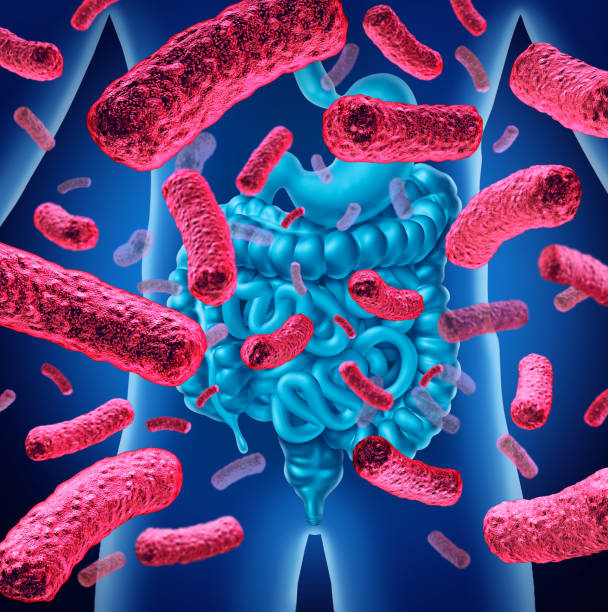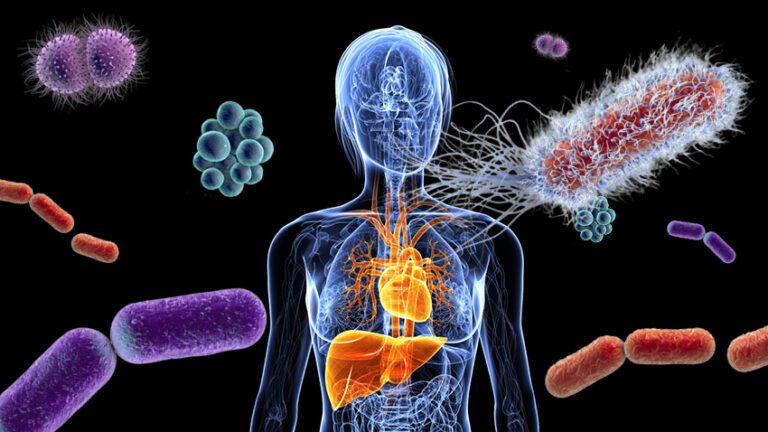
Gut Microbiota : Complete Guide
The gut microbiota, also known as gut flora, is a complex community of microorganisms that reside in the human digestive tract. Comprising trillions of microorganisms, including bacteria, viruses, fungi, and other microbes, it plays a crucial role in maintaining digestive health and overall wellness. This article explores the significance of a healthy gut microbiota, its relationship with the human microbiome, factors influencing its balance, and its association with diseases such as Crohn’s disease. Additionally, it discusses the potential of faecal microbiota transplantation (FMT) as a therapeutic approach and emphasizes the importance of maintaining a diverse and healthy gut microbiota.
Gut Microbiota and Its Functions: The gut microbiota interacts with the immune system, aiding in the breakdown and digestion of food, absorption of nutrients, and elimination of waste products. It also acts as a protective barrier against harmful pathogens and toxins that may enter the digestive tract. With the gut predominantly inhabited by bacteria, the genes carried by these microbial cells constitute the human microbiome.
Maintaining a Healthy Gut Microbiota: Disruptions in the gut microbiota can contribute to various diseases, including inflammatory bowel disease, metabolic disorders, and mental health conditions such as depression and anxiety. Factors such as antibiotic use, poor diet, stress, and illness can disturb the balance of the gut microbiota. Therefore, it is crucial to adopt practices that promote a healthy gut microbiota. This includes consuming a balanced diet rich in fiber, fermented foods, and probiotics, while avoiding unnecessary antibiotic use.
Understanding Microbiota and Microbiome: Microbiota and microbiome are related but distinct terms. Microbiota refers to the community of microorganisms that inhabit a particular environment, such as the human body. On the other hand, microbiome encompasses the entire collection of genetic material from these microorganisms, including DNA, RNA, and other molecules. It is essential to differentiate between these terms when discussing the gut microbiota and its role in human health.
The Human Microbiota and Disease: Research has shown that disturbances in the human microbiota can contribute to various diseases and health conditions. Inflammatory bowel disease, allergies, obesity, and even mental health disorders have been linked to alterations in the gut microbiota. Maintaining a diverse and healthy microbiota through proper diet, lifestyle choices, hygiene practices, and judicious antibiotic use is critical for disease prevention and overall well-being.

Crohn’s Disease and Gut Microbiota: Crohn’s disease, a chronic inflammatory disorder affecting the gastrointestinal tract, is influenced by changes in the gut microbiota. Studies have indicated that Crohn’s patients exhibit differences in microbiota diversity and composition compared to healthy individuals. Modifying the gut microbiota through dietary changes, probiotics, or faecal microbiota transplantation (FMT) shows promise in alleviating Crohn’s disease symptoms. However, further research is needed to determine the optimal approaches for manipulating the gut microbiota in individuals with this condition.
Faecal Microbiota Transplantation (FMT): FMT is a medical procedure aimed at restoring a healthy gut microbiota in patients with gastrointestinal conditions linked to microbiota imbalance. It involves transferring stool from a healthy donor to the colon of the recipient. FMT has demonstrated high effectiveness in treating recurrent Clostridium difficile infection (CDI) and is being explored as a potential treatment for other gastrointestinal conditions, including IBD, IBS, obesity, and diabetes. Nonetheless, caution must be exercised due to potential risks associated with FMT, such as infectious disease transmission and gastrointestinal side effects.




